This year's International Symposium on Walnuts and Pecans was held in Grenoble, France, from June 12th to 16th. This major event brought together scientists from all over the world, as well as professionals from the nut industry who, for the first time, were able to attend a trade show dedicated to them. The first three days were devoted to talks by scientists presenting the latest results of their work on genetics, planting material, plant production, diseases and pests, and post-harvest management. The week ended with a technical field day, during which delegates were invited to visit various experimental sites, nurseries and cooperatives.
As for the trade show, it brought together exhibitors from all sectors (from agricultural machinery to the latest technologies using cutting-edge equipment such as drones), open free of charge to industry professionals and delegates. “The idea behind the event was to bring these two communities together so that they could meet and exchange ideas,” explains Fabrice Lheureux, research engineer at CTIFL and coordinator of walnut experimentation in France.
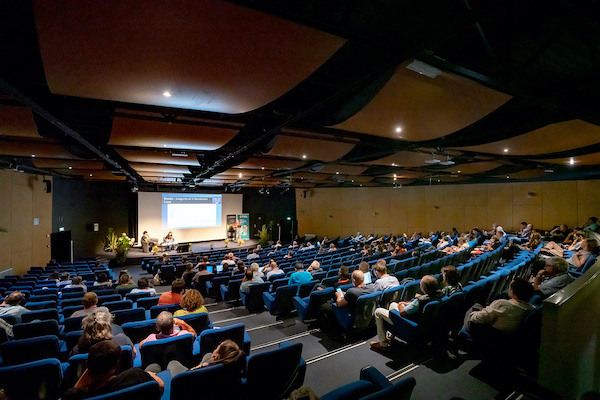 The Symposium amphitheater - Photo credit: Olivier Parent
The Symposium amphitheater - Photo credit: Olivier Parent
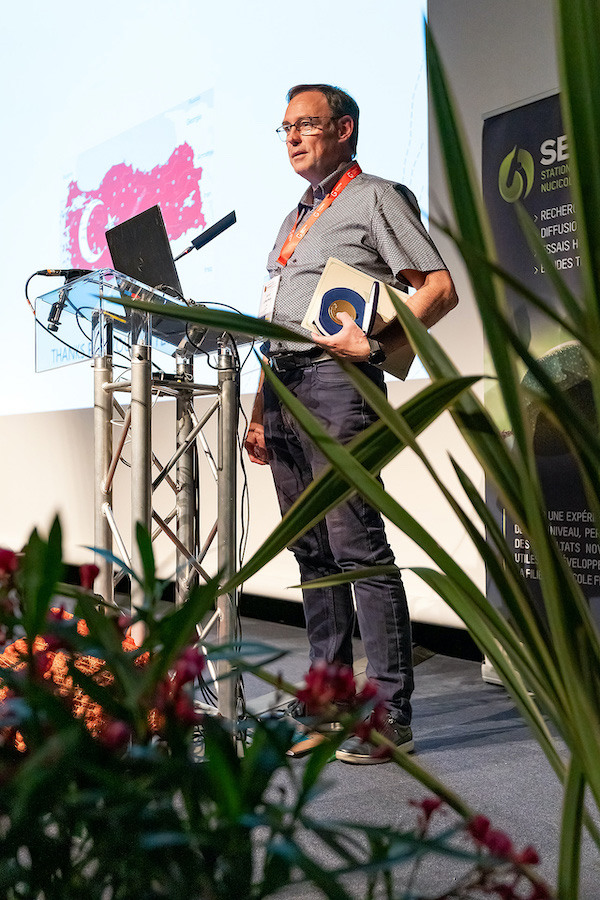
Fabrice Lheureux - Photo credit: Olivier Parent
Climate change at the heart of scientific studies
During this quadrennial symposium, the theme of climate change was clearly given particular prominence in the scientific presentations. “We saw a real turnaround regarding these issues, with work focusing more and more on the behavior of planting material, rootstocks in particular, with regard to new environmental constraints, which had not been addressed in previous years. A number of researchers presented their findings on water stress, soil-borne diseases, soil biodiversity, the use of fungi to combat certain diseases or to help trees cope with abiotic stress. Other cultivation systems were also discussed, such as agroforestry, as well as techniques for improving fruit quality, identification and traceability. New methods of pest control and biocontrol, such as the use of bacteriophages or sterile insects, were also frequently discussed this year. These new trends, brought about by global warming, have been strongly taken into account by the scientific community, which is beginning to provide the industry with some food for thought and guidance in finding solutions.”
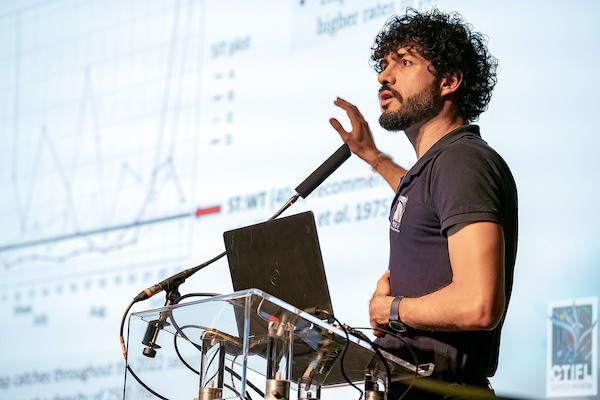 Photo credit: Olivier Parent
Photo credit: Olivier Parent
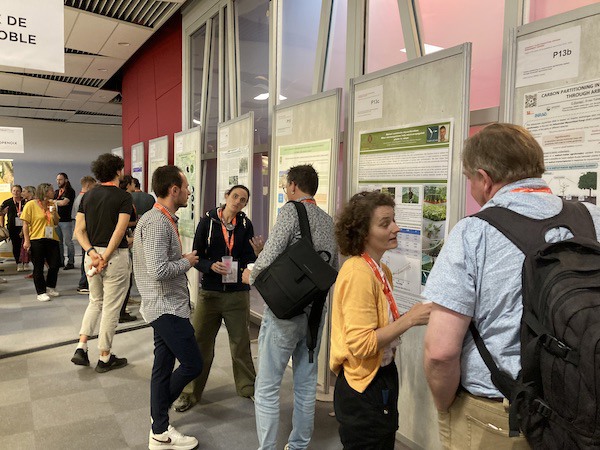 Photo credit: Olivier Parent
Photo credit: Olivier Parent
French nut growers increasingly interested in pecan production
Another highlight of the Symposium was the much stronger presence of pecans in the French nut-growing landscape. “It was clearly demonstrated that pecans are emerging in France as a new crop that could provide diversification for farms. Trials are underway, and several varieties are being evaluated to provide information to growers wishing to switch to this crop, which is more heat-tolerant than the walnut. It really is another interesting outlet, because pecans are grown in the same way as walnuts. Pecan growers do not have to make a major investment to start growing them, since they behave in the same way as walnuts. This easy adaptation, coupled with an attractive market due to the fact that the domestic supply is still too low in the face of the ever-increasing demand, makes it an attractive option for French producers.”
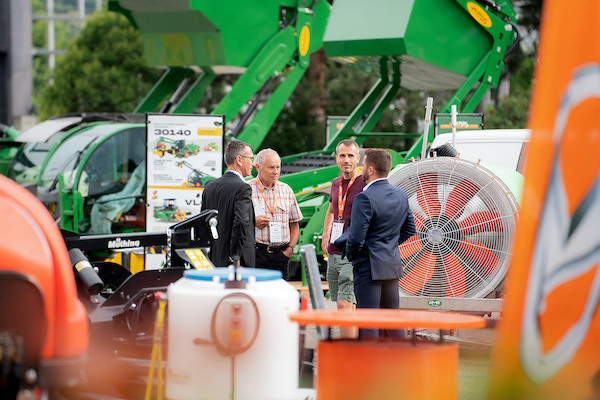 Photo credit: Olivier Parent
Photo credit: Olivier Parent
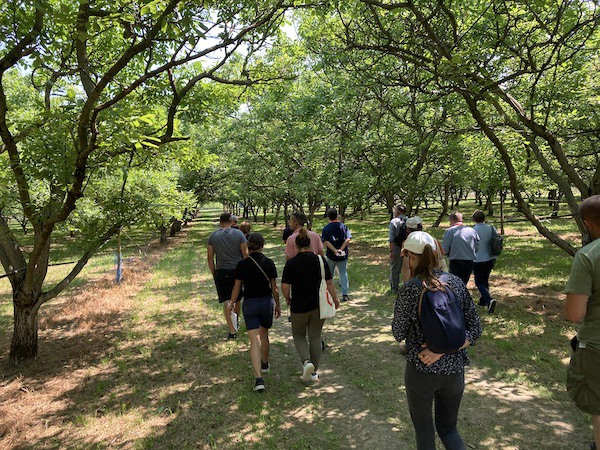 Photo credit: Olivier Parent
Photo credit: Olivier Parent
Rethinking walnut production in France
This diversification is well worth considering in a context where the French walnut industry is going through a difficult period. “This year has been particularly complicated for the French walnut industry. Foreign competition is increasingly strong, making trade very difficult. This situation was even more marked this year for growers, who are still struggling to come to terms with the campaign. But the sector will gradually restructure, mobilize and find solutions. Producers will bounce back, and when they do, our research teams will be at their side to help them rethink walnut production in France.”
For more information:
Fabrice Lheureux
CTIFL – Centre Technique Interprofessionnel des Fruits et Légumes
[email protected]
